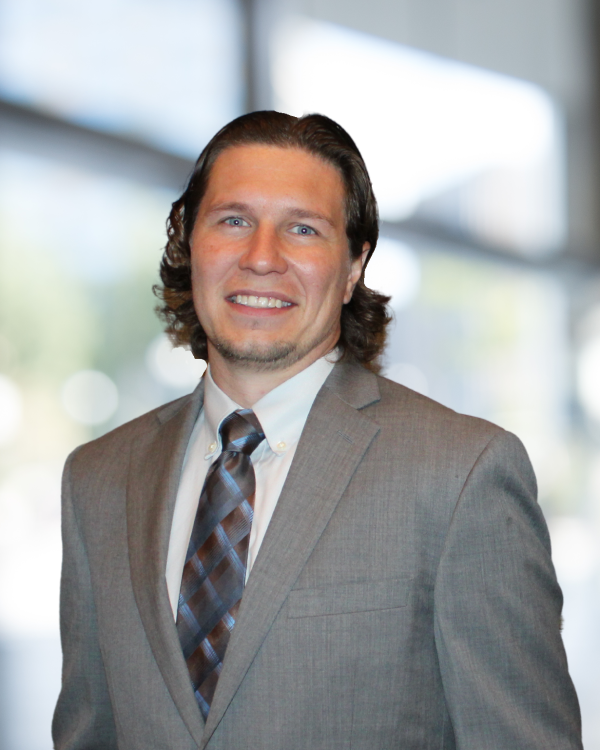
Joseph Midwig, PE, LSRP
Principal Engineer



Contact Information
Phone: (856) 423-8800
Email: jmidwig@rouxinc.com
Location: Logan Township, NJ
EXPERTISE
New Jersey Contaminated Site Remediation & Redevelopment (CSRR)
Site Assessment, Investigation, and Remediation under State and Federal Programs
In situ/Ex situ Treatment Systems Design, Operation, Maintenance, Monitoring, and Optimization
Industrial Site Recovery Act (ISRA) Transaction Support
Petroleum & Energy Services (Investigation and Remediation of Bulk Storage Petroleum Terminals)
EDUCATION
BS, Environmental Engineering - Drexel University
Joseph Midwig, PE, LSRP
Principal Engineer
Mr. Midwig is a registered Professional Engineer in New Jersey, Pennsylvania and Maryland since 2018, and a New Jersey Licensed Site Remediation Professional (LSRP) since 2022. He has over twelve years of experience and has been with Roux since the inception of his career, starting as an intern and advancing to his current position as a Principal Engineer. He holds a BS in Environmental Engineering with minors in Ecology and Biological Sciences from Drexel University. He is currently serving as the LSRP-of-Record on approximately 17 separate matters. As part of this role, Mr. Midwig has certified key phase document submittals and issued final remediation documents that have been reviewed and accepted by the leading regulatory agency.
Mr. Midwig has conducted, managed, and overseen investigations and remediations at numerous sites, concentrated mainly in the Northeast. He has worked in a variety of market sectors, including Petroleum (Energy), Public Sector, Insurance, Real Estate (Brownfields), Industrial, and Litigation, with a focus on management and remediation of legacy petroleum/petrochemical and public transportation facilities. Mr. Midwig’s strong technical and project management skills, as well as his compelling client advocacy, have made him a successful environmental consultant.
- Public Transportation Program Manager: Managing a portfolio of remediation projects for a major transportation company. The portfolio comprises over 25 major projects, including bus terminals and maintenance facilities, electrical substations, rail yards and laydown areas, and historic facilities redeveloped into commercial, industrial, and residential use. Responsible for technical team development, implementing programs to satisfy regulatory and safety requirements, and overall program management.
- Technical Remedial Engineer: Senior engineering support for the ongoing investigation and remediation of a multi-million-gallon release of petroleum hydrocarbon product from a former refinery and petroleum storage terminal in northern New Jersey. The project is under LSRP oversight, and Mr. Midwig contributed in bringing the project into compliance with New Jersey Department of Environmental Protection (NJDEP) regulatory/mandatory deadlines by assisting in the development of a comprehensive remedial strategy. Includes the optimization of extensive, existing total fluid and light non-aqueous phase liquid (LNAPL) skimmer systems, vapor mitigation systems, and hydraulic groundwater containment systems, which overall led to the removal of obsolete infrastructure and reduction in long-term operations and maintenance (O&M) costs. Activities included the investigation and remedial planning for hexavalent chromium impacts in operational and non-operational areas, evaluation of petroleum recovery interim remedial measures (IRMs) and planning for transition to long-term remedial actions, remedial action permit modification and preparation of biennial certifications, and investigation of LNAPL and vapor intrusion for off-site properties. This role entails providing regulatory/strategic planning, including interpretation of regulatory timeframe and permit requirements, and determining the required path/schedule to meet these goals.
- Remediation Project Manager: Project management, design, and implementation for a full site remediation of gasoline constituents via dissolved oxygen, bacteria, and nutrient recirculation in overburden soils and bedrock in preparation for site redevelopment. Pneumatic fracturing and sand proppant emplacements were used in order to increase the hydraulic conductivity within the overburden soils. The remediation was designed to address the saturated soil and groundwater at the Site, which was impacted primarily with gasoline from former gas station underground storage tanks (USTs). The unsaturated soil was addressed via excavation to 16 feet. The remediation was implemented under the NJDEP’s Site Remediation Program. Specific responsibilities included developing the remedial approach, design, and implementation of the injection and extraction well network; permitting; reporting; gaining approval from the LSRP; system troubleshooting and routine O&M; and progress monitoring of dissolved-phase constituents in groundwater.
- Lead Engineer and Project Manager: Designed and implemented the preliminary assessment, site investigation, remedial investigation, and remedial action of various contaminants in the soil and groundwater at a former iron work facility that involved conversion of pig iron to wrought iron in Dover, New Jersey. The release or discharge of an unspecified material was reported to the NJDEP after discovering crushed and partially buried drums. Groundwater at the Site was impacted with chlorinated volatile organic compounds (CVOCs) and soil was impacted with VOCs, semi-volatile organic compounds (SVOCs), and polychlorinated biphenyls (PCBs). CVOCs were addressed through a variety of Zero Valent Iron/Emulsified Vegetable Oil (ZVI/EVO) and enhanced in situ bioremediation injections. Pursuant to Mega Rule or Final PCB Rule (40 CFR 761.61), the PCB impacted soils above 100 ppm were addressed under performance-based remediation (i.e., soil excavation and off-site disposal) followed by implementation of a self-implementing plan to address PCB-impacted soils below 100 ppm, which involved a variety of excavations, soil movement/placement, and capping to meet Toxic Substances Control Act (TSCA) high and low occupancy use requirements for future redevelopment.
- Lead Engineer and Project Manager: Managed an active asphalt refining/marine terminal facility in Paulsboro, New Jersey. Responsibilities include the investigation of contaminated media to determine the extent and magnitude as a result of various releases from historic and current operations; design and implementation of a LNAPL and dissolved-phase groundwater remediation system; implementation of an active LNAPL recovery program; regulatory reporting and permitting; review and management of the facility’s New Jersey Discharge Elimination System (NJPDES) permit for discharge to surface water, groundwater, and wastewater; and troubleshooting the operation of the on-site wastewater treatment plant.
Innovative Treatment of Hexavalent Chromium in Alkaline Industrial Waste, BATTELLE 13th International Conference on Remediation of Chlorinated and Recalcitrant Compounds, Denver, Colorado, June 2024.